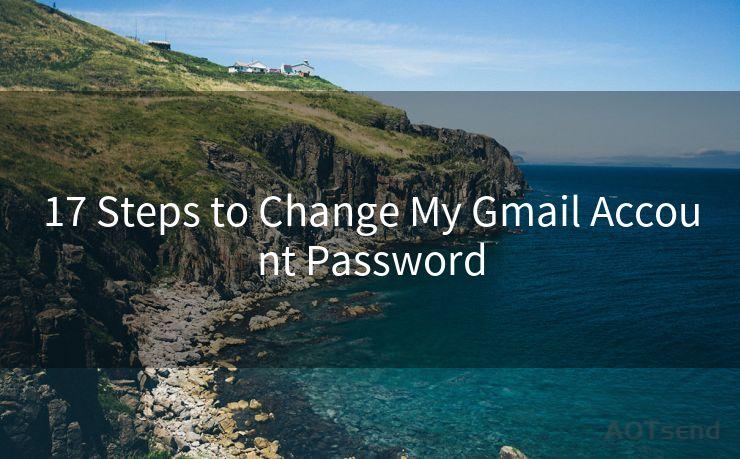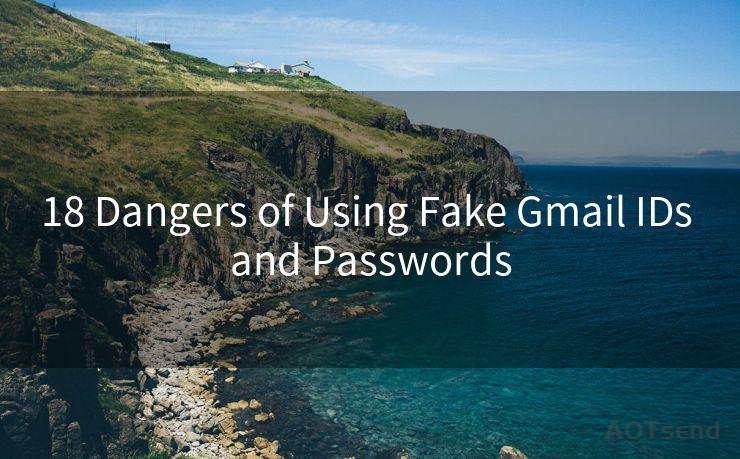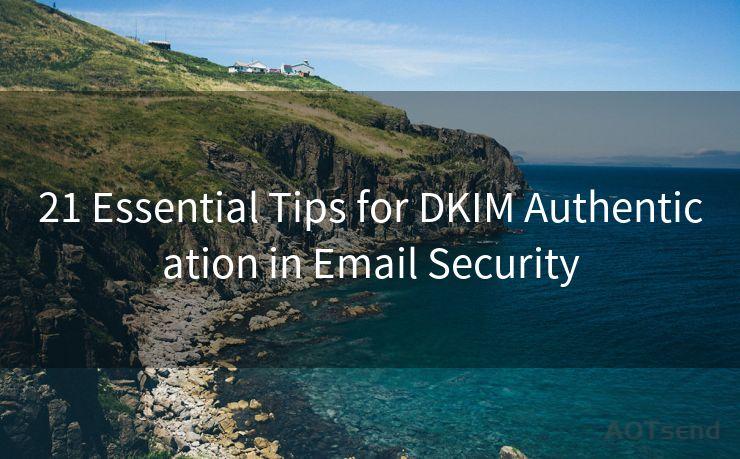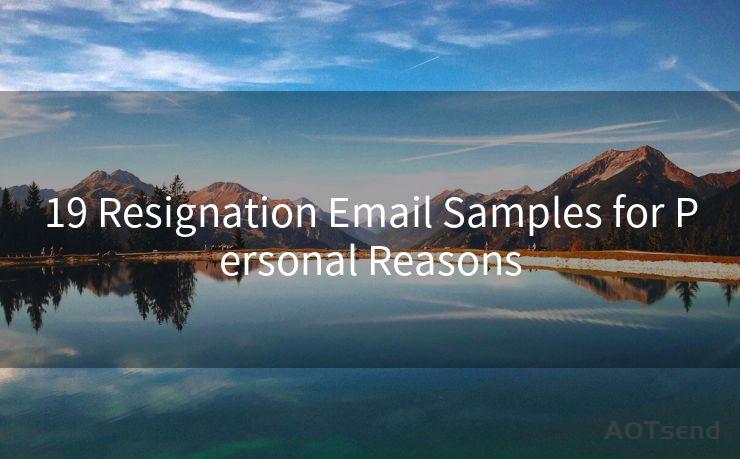17 Authenticating Email With Dkim Best Practices




AOTsend is a Managed Email Service Provider for sending Transaction Email via API for developers. 99% Delivery, 98% Inbox rate. $0.28 per 1000 emails. Start for free. Pay as you go. Check Top 10 Advantages of Managed Email API
In the digital age, email authentication is crucial for ensuring the security and integrity of electronic communications. DomainKeys Identified Mail (DKIM) is a widely used email authentication technique that helps verify the sender's identity and the message's integrity. In this article, we'll explore 17 best practices for authenticating email with DKIM, aimed at enhancing your email security and improving your SEO ranking on Google.
1. Understanding DKIM
DKIM works by adding a digital signature to the email header. This signature is verified by the receiving server, confirming that the email hasn't been tampered with during transit. It also ensures that the email originates from the stated sender.
2. Implementing DKIM
To implement DKIM, you need to generate a public-private key pair. The private key is used to sign outgoing emails, while the public key is published in your domain's DNS records for recipients to verify the signature.
3. Selecting a Reliable DKIM Provider
Choose a DKIM provider with a proven track record in email authentication. Look for providers that offer robust security features and easy integration with your existing email system.
4. Configuring DKIM Correctly
Proper configuration is essential for DKIM to work effectively. Ensure that your DKIM records are correctly set up in your DNS and that your email server is configured to sign outgoing messages with the private key.
5. Testing DKIM Implementation
After implementing DKIM, it's crucial to test its effectiveness. Send test emails to different providers and use tools like Gmail's "Show original" feature to check if the DKIM signature is present and valid.
6. Monitoring DKIM Performance
Regularly monitor your DKIM implementation to ensure it's working as expected. Check for any issues or failures in the signing process and address them promptly.
7. Keeping DKIM Keys Secure
Protect your DKIM private keys from unauthorized access. Store them securely and ensure only authorized personnel have access to them.
8. Rotating DKIM Keys Periodically
For added security, consider rotating your DKIM keys periodically. This helps mitigate the risk of key exposure and ensures the continued effectiveness of your DKIM implementation.
9. Educating Users on DKIM
Educate your users on the importance of DKIM and how it helps protect their emails. This awareness can lead to better security practices within your organization.
10. Integrating DKIM with Other Security Measures
DKIM is just one part of a comprehensive email security strategy. Integrate it with other measures like SPF (Sender Policy Framework) and DMARC (Domain-based Message Authentication, Reporting, and Conformance) for enhanced protection.
11. Handling DKIM Failures Gracefully
In case of DKIM failures, have a plan to handle them gracefully. Identify the cause of the failure and take corrective measures to ensure future emails are properly signed.
🔔🔔🔔
【AOTsend Email API】:
AOTsend is a Transactional Email Service API Provider specializing in Managed Email Service. 99% Delivery, 98% Inbox Rate. $0.28 per 1000 Emails.
AOT means Always On Time for email delivery.
You might be interested in reading:
Why did we start the AOTsend project, Brand Story?
What is a Managed Email API, Any Special?
Best 25+ Email Marketing Platforms (Authority,Keywords&Traffic Comparison)
Best 24+ Email Marketing Service (Price, Pros&Cons Comparison)
Email APIs vs SMTP: How they Works, Any Difference?

12. Leveraging DKIM for Brand Protection
DKIM helps protect your brand reputation by ensuring that emails sent from your domain are authentic. This reduces the risk of phishing attacks and other malicious activities that could tarnish your brand image.
13. Improving Email Deliverability with DKIM
By authenticating your emails with DKIM, you can improve their deliverability. Email providers are more likely to trust and deliver emails that have been properly authenticated.
14. Enhancing Customer Trust with DKIM
Customers are more likely to trust emails that are authenticated with DKIM. This can lead to improved engagement and response rates from your email campaigns.
15. Complying with Industry Standards and Regulations
Certain industries and regions have specific requirements for email authentication. Implementing DKIM can help you comply with these standards and regulations, reducing the risk of non-compliance penalties.
16. Troubleshooting DKIM Issues
If you encounter issues with DKIM, don't hesitate to seek help from your DKIM provider or the IT community. There are numerous resources and forums dedicated to helping users troubleshoot and resolve DKIM-related problems.
17. Staying Up to Date with DKIM Best Practices
As email authentication technologies evolve, it's important to stay up to date with the latest DKIM best practices. Regularly review and update your DKIM implementation to ensure it remains effective and secure.
By following these best practices for authenticating email with DKIM, you can enhance the security of your email communications, improve deliverability, and protect your brand reputation. Additionally, by optimizing your email authentication efforts, you can also improve your website's SEO ranking on Google, as secure and




AOTsend adopts the decoupled architecture on email service design. Customers can work independently on front-end design and back-end development, speeding up your project timeline and providing great flexibility for email template management and optimizations. Check Top 10 Advantages of Managed Email API. 99% Delivery, 98% Inbox rate. $0.28 per 1000 emails. Start for free. Pay as you go.
Scan the QR code to access on your mobile device.
Copyright notice: This article is published by AotSend. Reproduction requires attribution.
Article Link:https://www.aotsend.com/blog/p4838.html











